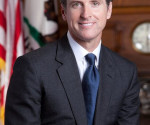Should capital gains tax rates reflect ordinary income tax rates? Maybe in Wonderland
[Update]: In his column today, Krugman continues the theme that capital gains taxes should be higher, although he does not say HOW high. His reference toward Ronald Reagan invokes another logical fallacy, as though whatever Reagan did regarding taxes always should be acceptable to people who hold to free-market principles.
Krugman also fallaciously assumes that wealthy people pay ONLY 15 percent of their entire income in taxes. However, this interesting chart appeared today in the Wall Street Journal that lists ALL federal taxes paid by people in different income groups, and it tells a much different story. (Of course, Krugman is well-known for making up history, whether it be tax or regulation history. One might expect such behavior from a political operative.)
Now, why would Krugman try to be deceptive here? Why is Krugman nearly always deceptive? It is because he has traded whatever academic integrity he had to be a political operative. It is one thing to argue about tax rates and quite another to present a false picture of a situation — when accurate information is available. [End Update]
In his post on the post-war history of capital gains taxes, Paul Krugman points out that the rates have been higher in the past than they are now. That obviously is true, but it opens up other arguments. For example, he declares this:
Here’s how Romney’s low taxes will be defended by smarter conservatives (the less smart ones will just shout “class warfare”): they’ll claim that there are compelling reasons to have low taxes on capital gains, and that there is therefore nothing wrong with having very high-income people paying lower tax rates than the middle class.
Like Barack Obama, he is slippery with his language, for even with lower rates, people who gain most of their income via investment are going to pay significantly higher amounts in taxes than others. Unfortunately, in a speech the other day, Obama first mentioned tax rates and then he claimed that the wealthy thus pay “lower taxes” than do people in the middle class. That simply is false, but a president who claims that paying unemployment benefits will “create more jobs” than the construction of an oil pipeline (and, by insinuation, more wealth) simply is delusional about the economy. Keynesianism will do that to people. The U.S. economy did well relative to the rest of the world (which was recovering from World War II) at this time, so does Krugman also believe, in the name of “fairness,” that the capital gains rates also should have been 91 percent? I don’t know, but I don’t see, using his own logic, how he can argue against that modest proposal.
In fact, during that time, even some of the LOWEST rates were higher than 25 percent or slightly under 25 percent. Thus, will Krugman and Obama complain that the capital gains rates in the 1950s were unjust because they were lower than tax rates that people earning small incomes were paying? I don’t know, although it seems that Krugman seems to be fixated on the current situation while claiming that the 1950s were prosperous years, and I suspect he believes that the high tax rates were part of the reason for the prosperity.
(He certainly has not made any statements in public to the contrary except to tell me in a 2004 Q&A at the Southern Economic Association meetings that the 70 percent rates of 1980 were “insane.” I have not seen him making any similar statements in any of his writings since then.)
If Paul Krugman believes that capital gains taxes always should be at the top rate, since it would be unfair for investors to pay the same rates (or less) than the middle class, perhaps we need to look at the various marginal rates of income taxation to see if Krugman is trying to pull a fast one. For example, during the time in the 1950s when capital gains rates were 25 percent, the top income tax rate in the USA was 91 percent.
The following table that lists inflation-adjusted income tax brackets since 1913 might make things a bit more clear:
| Partial History of Marginal Income Tax Rates Adjusted for Inflation | ||||||||
|---|---|---|---|---|---|---|---|---|
| Income | First | Top Bracket | ||||||
| Year | Brackets | Bracket | Rate | Income | Adj. 2011 | Comment | ||
| 1913 | 7 | 1% | 7% | $500,000 | $11.3M | First permanent income tax | ||
| 1917 | 21 | 2% | 67% | $2,000,000 | $35M | World War I financing | ||
| 1925 | 23 | 1.5% | 25% | $100,000 | $1.28M | Post war reductions | ||
| 1932 | 55 | 4% | 63% | $1,000,000 | $16.4M | Depression era | ||
| 1936 | 31 | 4% | 79% | $5,000,000 | $80.7M | |||
| 1941 | 32 | 10% | 81% | $5,000,000 | $76.3M | World War II | ||
| 1942 | 24 | 19% | 88% | $200,000 | $2.75M | Revenue Act of 1942 | ||
| 1944 | 24 | 23% | 94% | $200,000 | $2.54M | Individual Income Tax Act of 1944 | ||
| 1946 | 24 | 20% | 91% | $200,000 | $2.30M | |||
| 1954 | 24 | 20% | 91% | $200,000 | $1.67M | |||
| 1964 | 26 | 16% | 77% | $400,000 | $2.85M | Tax reduction during Vietnam war | ||
| 1965 | 25 | 14% | 70% | $200,000 | $1.42M | |||
| 1981 | 16 | 14% | 70% | $212,000 | $532k | Reagan era tax cuts | ||
| 1982 | 14 | 12% | 50% | $106,000 | $199k | “ | ||
| 1987 | 5 | 11% | 38.5% | $90,000 | $178k | “ | ||
| 1988 | 2 | 15% | 28% | $29,750 | $56k | “ | ||
| 1991 | 3 | 15% | 31% | $82,150 | $135k | |||
| 1993 | 5 | 15% | 39.6% | $250,000 | $388k | |||
| 2003 | 6 | 10% | 35% | $311,950 | $380k | Bush era tax cuts | ||
| 2011 | 6 | 10% | 35% | $379,150 | $379k | |||
In the end, I don’t think Krugman is making much of an argument. For example, as one who was in college in the early 1970s and then being in the workplace for more than half the decade, the 40 percent capital gains rates also coincided with an era of high inflation and high unemployment. If Krugman believes that capital gains rates should reflect normal income tax rates, then he is saying that we need 40 percent capital gains rates again.
For that matter, the 1970s were a time of economic stagnation, not unbridled prosperity, as Krugman wants us to believe. He might hate the 1980s, but that also was a time of huge private investments in the high-tech sector and telecommunications, and Daniel Henninger of the Wall Street Journal has an excellent column about that era, including the corporate raiders that Krugman claims did so much damage. The article deals with the actual state of business entrepreneurship at that time, something that Krugman is incapable of understanding, since all of his economic analysis is done with the crude aggregates of the Keynesian models, and there is no way to fit entrepreneurship into those contraptions.
There is a larger issue, however, and that is private investment as a whole. Krugman, being a good Keynesian, holds that economically speaking, government “investment” is just as good as private investment, so it doesn’t matter if the government is building nuclear weapons or a farmer is growing crops. If the GDP numbers of both are equal, then both are equal in their wealth component.
Is this a ridiculous example, since even Krugman would admit we cannot eat nuclear weapons? In one way, yes, but in the Keynesian structure, it is not ridiculous. And given that Krugman has given us his “confidence fairy” ditty numerous times, it is clear that he does not hold private investment to be anything but another form of spending, and if government can spend in equal amounts, then it is just as well and perhaps better, since in Wonderland, State Power equals freedom and prosperity.
Check out the “Krugman in Wonderland” posts here on The Global Dispatch – click here
William L. Anderson is an author and an associate professor of economics at Frostburg State University in Maryland. He is also an adjunct scholar with the Mackinac Center for Public Policy as well as for the Ludwig von Mises Institute in Alabama.
Read more at “Krugman-in-Wonderland”














